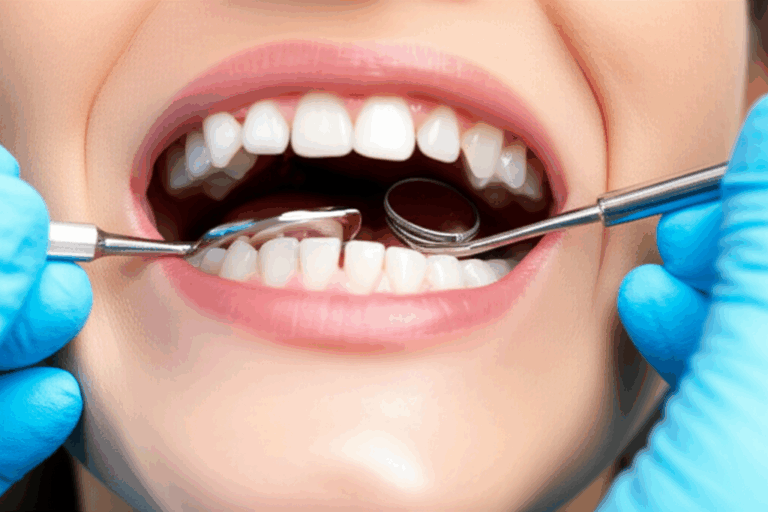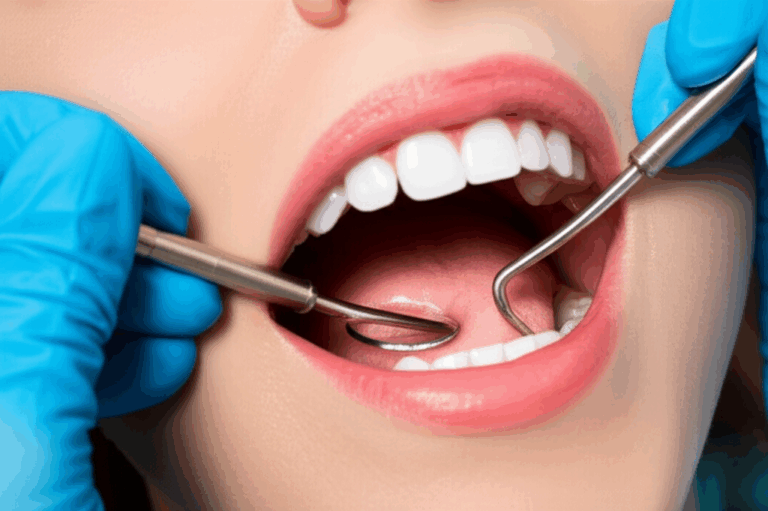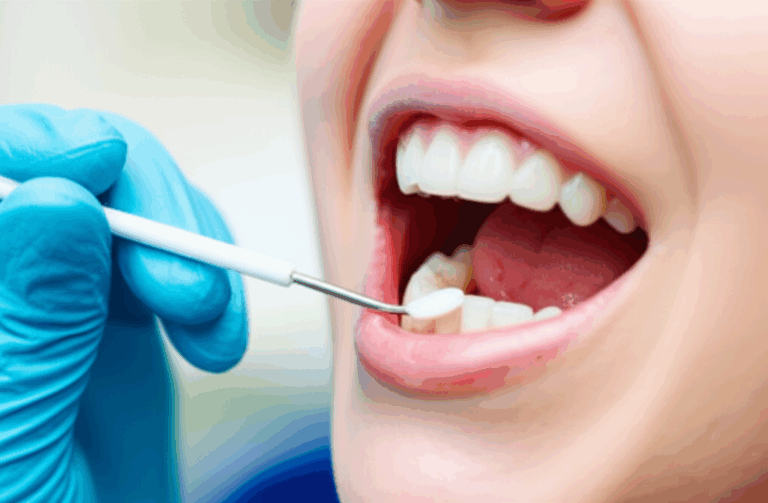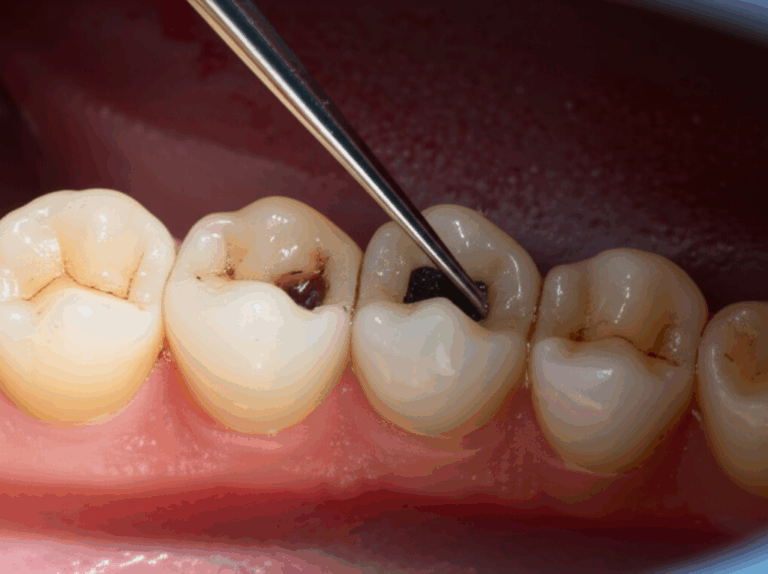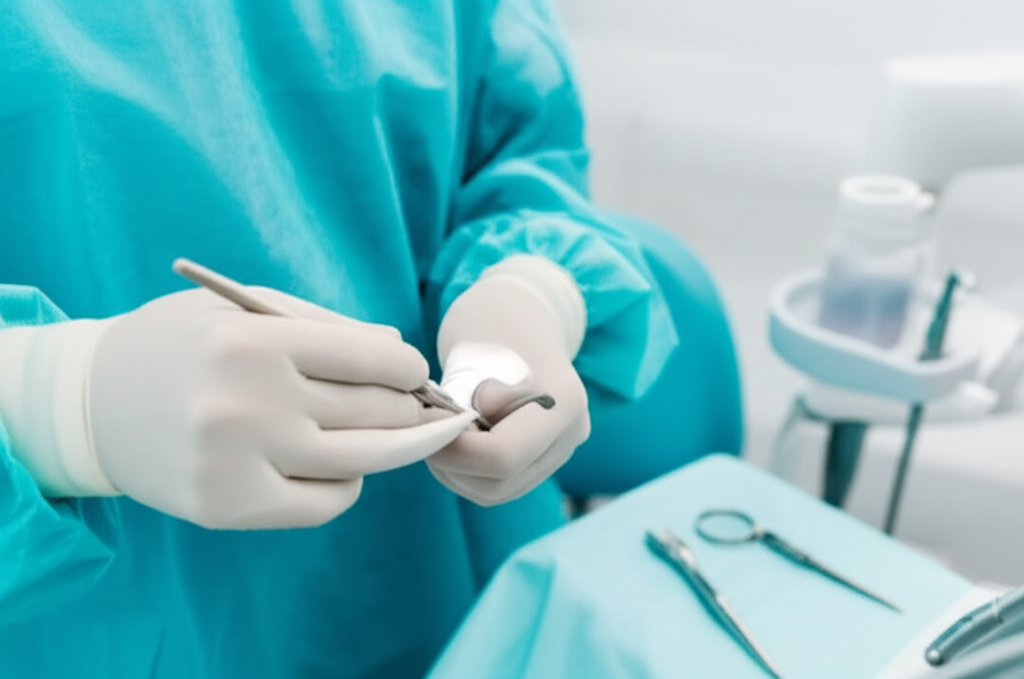
Can a General Dentist Perform Oral Surgery? Understanding Scope & Specialization
If you ever wondered, “Can my regular dentist pull a tooth or do more complicated mouth surgery?”—you’re not alone. This article clears up what general dentists can do, what makes oral surgeons different, and when you need a specialist for your dental health. Let’s make those scary dental decisions a whole lot easier and much less confusing.
Table of Contents
Introduction: What Really Is Oral Surgery?
Did you ever think all dental work is the same? It’s easy to get mixed up. Oral surgery means doing surgery in your mouth or jaw. Sometimes, it’s something simple like pulling a loose tooth. Sometimes it’s a bigger deal—like taking out wisdom teeth buried deep in your jaw.
So, can any dentist do oral surgery? The short answer is yes, but with limits. Not every dentist does every kind of surgery. And not every kind of oral surgery is the same.
Why read on? Because you deserve to feel safe, make smart choices, and know who to trust with your family’s smiles.
General Dentist vs. Oral & Maxillofacial Surgeon: What’s the Big Difference?
General dentists are like the regular doctor for your mouth. They check teeth, fill holes, clean, teach you how to brush, and sometimes pull teeth or do small surgeries.
Oral & Maxillofacial Surgeons (OMFS) are the mouth and jaw experts. After finishing dental school, they train for years longer—like a doctor in a hospital. They handle big jobs: tough teeth, jaw surgeries, and even fixing broken bones in your face.
Here’s the difference:
- General Dentist:
- Finds and fixes common mouth problems
- Does cleanings, fillings, easy tooth pulling
- Does a little bit of surgery (with extra learning)
- Oral Surgeon (OMFS):
- Handles tough surgeries, broken bones, and big jaw jobs
- Does hospital-based work when it’s needed
- Trained in all types of sleep medicine (anesthesia)
It’s kind of like how a general doctor and a heart surgeon are both doctors, but one does bigger, riskier jobs.
What Types of Oral Surgery Can a General Dentist Do?
You might be surprised at how much a well-trained general dentist can do. One family came in thinking they needed a specialist for a simple tooth pull, but I did it all the time.
Here’s a quick table to show the difference:
| Procedure | General Dentist Can Do | Oral Surgeon Does |
|---|---|---|
| Simple Tooth Extraction | ✔️ | ✔️ |
| Impacted Wisdom Tooth | Sometimes | ✔️ |
| Dental Implant (Simple) | ✔️ (After Training) | ✔️ |
| Bone Graft (Small) | ✔️ (Limited Cases) | ✔️ |
| Jaw Surgery | ❌ | ✔️ |
| Facial Trauma | ❌ | ✔️ |
| Biopsy (Small Lesion) | ✔️ | ✔️ |
Let’s look closer:
Simple Tooth Extractions
Most general dentists pull teeth all the time. If your tooth isn’t broken or stuck, your dentist can probably take it out while you’re awake.
Minor Bone Smoothing (Alveoloplasty)
If you get dentures, sometimes the bone needs smoothing after a tooth comes out. Your dentist can fix that.
Taking a Small Biopsy
If your dentist sees a weird bump or sore, they may take a little piece to send for testing. If it looks serious, they’ll send you to a surgeon.
Frenectomy
Ever hear about the thin string under your tongue or upper lip? Sometimes it gets too tight. Dentists can fix this easily.
Simple Dental Implants
More and more dentists are learning this skill every year. If your bone is good and it’s a small spot, ask your dentist.
Small Bone Grafting
If you lose a tooth, you can lose some bone, too. A dentist can add material to keep your jaw strong in small cases.
When Should You See an Oral Surgeon Instead?
Not every mouth problem is easy. Some jobs need a pro who’s been there before.
Impacted Wisdom Teeth
Wisdom teeth can be tricky. Sometimes they’re sideways, stuck, or close to nerves. You need someone with the right skill and tools.
Hard Tooth Extractions
If a tooth breaks at the gum, or the root is hard to get out, an oral surgeon takes over. They also help people who have health issues.
Big Implants & Bone Grafting
Need an implant but no bone left? Need a big bone added, or something called a sinus lift? Time for the OMFS.
Jaw Surgery
If your jaw isn’t lined up right, or you’ve got a big overbite, an oral surgeon is your best bet.
Breaks and Big Problems
Broken jaws, broken faces, cysts, tumors—these go to an oral surgeon.
Once, a young athlete got a jaw injury at a game. Their dentist quickly sent them to an OMFS. It’s about safety, not pride.
How Are Dentists and Oral Surgeons Trained?
Let’s sort out what those letters (DDS, DMD) mean and why it matters to you.
Dental School (DDS/DMD)
All dentists do about four years of school: learning mouth anatomy, cleaning, fillings, basic surgery, and emergencies.
Extra Learning
Dentists keep learning at workshops for things like implants or sleep medicine. Still, their license says what they can and can’t do.
Oral Surgeon Residency
After dental school, OMFS go to hospital training for 4-6 years more. They learn:
- How to safely put people to sleep (anesthesia)
- Big surgeries: tumors, fixing jaws, injuries
- Emergency hospital stuff
Licensing
Every state says what a dentist CAN and CAN’T do. It’s about skill and safety. Ask your dentist what training they’ve had for your surgery.
How Do State Laws Affect What My Dentist Can Do?
Every state has its own Dental Practice Act—basically, their own set of rules.
- Some states let dentists do small surgeries—if they take extra classes.
- Harder surgeries (like jaw, deep sleep medicine) are off-limits unless the dentist is also a surgeon.
- Rules cover what kind of sleep medicine (sedation) a dentist can use.
Your state dental board wants you safe. Before booking, ask, “Is this allowed in your office?”
How Do I Choose the Right Person for My Surgery?
Start with these:
- If it’s a simple tooth pull, maybe your regular dentist is good.
- If it’s tricky or you have health problems, see a specialist.
- Do they do this surgery often?
- Do they have extra training or certificates?
- Oral surgeons can give deeper and safer sleep meds, like IV or even put you fully to sleep.
- Do they have the right tools and safety stuff for your surgery?
- Dentists know their limits. If they want to send you out, trust them.
If you need something like dental implants or crowns after surgery, the right china dental lab helps a lot with getting your teeth just right.
What Happens When You Get Referred to a Specialist?
Getting sent to an OMFS or another expert is smart—it’s about taking good care of you. What happens:
Cost, Comfort, and Recovery: What Should You Think About?
Surgery can sound scary, but good questions help. Here’s what matters:
- Cost: A dentist might charge less for easy work. But don’t pick only by price. Mistakes can cost more to fix.
- Insurance: A lot of insurances cover these surgeries—ask if your dentist or surgeon is on the list.
- Comfort: Nervous? Ask about your sleep medicine options.
- Recovery: Most people feel okay after simple pulls or implants in a few days. Big surgeries need more time and follow-ups.
Many people are surprised how easy things go when the right expert does the job. I’ve seen even teens leave smiling after a wisdom tooth comes out—just because the surgeon made it safe and gentle.
FAQs: Common Questions Answered
Can a general dentist remove all wisdom teeth?
- General dentists can remove wisdom teeth that are easy to reach. Deep or sideways ones usually go to the surgeon.
Is it cheaper to have a general dentist do an extraction?
- Sometimes, for easy cases. But if things go wrong, it gets expensive fast. Safe care can actually save money.
How do I know if my dentist is good for my procedure?
- Ask! Good dentists like to talk about their experience and training. Look for certificates and ask how often they do this work.
What questions should I ask before oral surgery?
- What are the risks?
- How long till I feel better?
- What pain or sleep medicine will I get?
- Who do I call if I have pain or problems?
- Can you show photos of other cases?
What kinds of sleep medicine are there?
- Dentists use numbing shots, laughing gas, or pills.
- Oral surgeons can do more: IV medicine, deep sleep, or even in-hospital care.
Key Takeaways
- Not all mouth surgery is the same. Dentists do easy jobs; surgeons do the hard stuff.
- Training counts. Years of extra school make a difference.
- Ask questions. The more you know, the safer you’ll feel.
- If you’re unsure, get a referral. It’s the safe move!
- Safety is most important. Don’t pick just by what’s easy or cheap.
- A good lab means better results. From implants to dentures, work with the best team you can.
The bottom line? Your general dentist and oral surgeon are a team—both are there to keep your mouth healthy and your smile bright. Pick knowledge, safety, and good experience every time. If you have questions, ask. Your healthiest smile is always worth it!
References
- American Dental Association (ADA)
- American Association of Oral and Maxillofacial Surgeons (AAOMS)
- State Dental Board Guidelines
For more info on trusted dental solutions, check out china dental lab. And remember, good results start with the right people.

